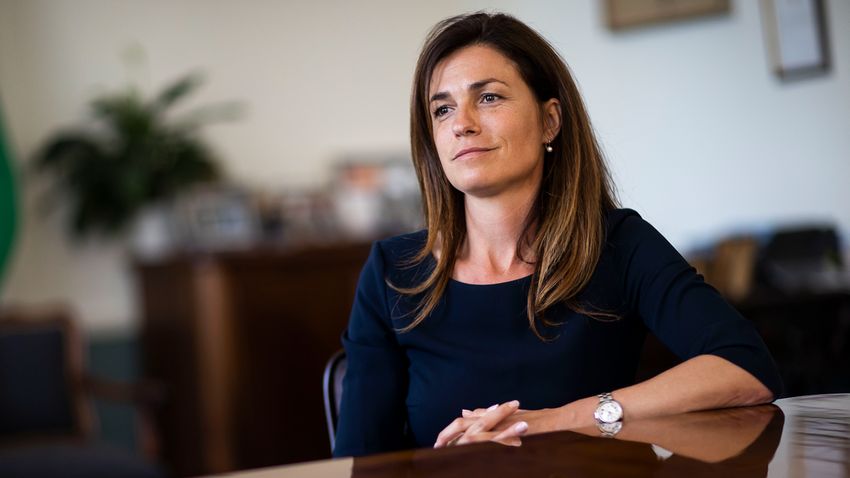After shaking off communism, Hungary did not imagine it would change one set of foreign-imposed rulers for another, Hungarian Justice Minister Judit Varga told American Conservative in an interview.
“We always wanted to come home because Europe is our home. This has finally happened, but the family has changed in the meantime: We are under pressure to fall in line, especially in terms of gender politics and migration,” said Varga about Hungary’s return to Europe from communism.
“The Hungarian people have always been freedom-loving and wanted to be independent, but they never wanted to trade the dictatorship of communism for the oppression of political correctness and the woke culture that is rampant in Europe today.”
[pp id=16603]
She said that post-Cold War Europe and its institutions were struggling with the consequences of the Soviet Union and the victory over communism. She said the European Union is falling from crisis to crisis, but it never learns from them. Instead of functioning as an integrated body that promotes economic growth, which was the EU’s original purpose, it is increasingly pursuing political goals along gender ideology and pro-immigration lines.
According to Varga, EU institutions been captured by NGOs, and this is dangerous in more ways than one. On the one hand, these organizations are not elected by anyone, and on the other hand, they are able to influence public opinion through their studies, advocacy, and media outreach.
“It is not surprising that the transparency often mentioned in Brussels is no longer as important for NGOs,” said the minister, who believes that the Hungarian example should be followed in the EU with regard to NGOs. As a result, the sovereignty of states is increasingly being pushed into the background, while NGOs can easily assert their ideologically infused interests through the European Parliament.
[pp id=48709]
“The larger NGOs, such as the Helsinki Committee or Transparency International, all have political agendas, but this has nothing to do with civil society; they should form a party, and once elected they will have the right to determine public opinion,” the justice minister said.
Varga said the battle between the EU and NGOs against member states is a battle between two different worlds.
“They think that progressive liberal views spread through NGOs will make the world a better place — we don’t believe that,” she said. “We believe that the world will remain beautiful if we keep our local communities, our traditions, our churches, our families. We will always follow our national interest, and in doing so we will survive.”
According to the minister, in Central Europe the word “nation” has a very positive meaning, unlike in Brussels, where all efforts are made to destroy it.
“We believe that a strong Union needs strong member states, but unfortunately we see increasing centralization efforts by the institutions,” she said, adding that the EU is therefore following a clear pattern of attacking like-minded conservative governments in Italy, Poland, and Hungary.





